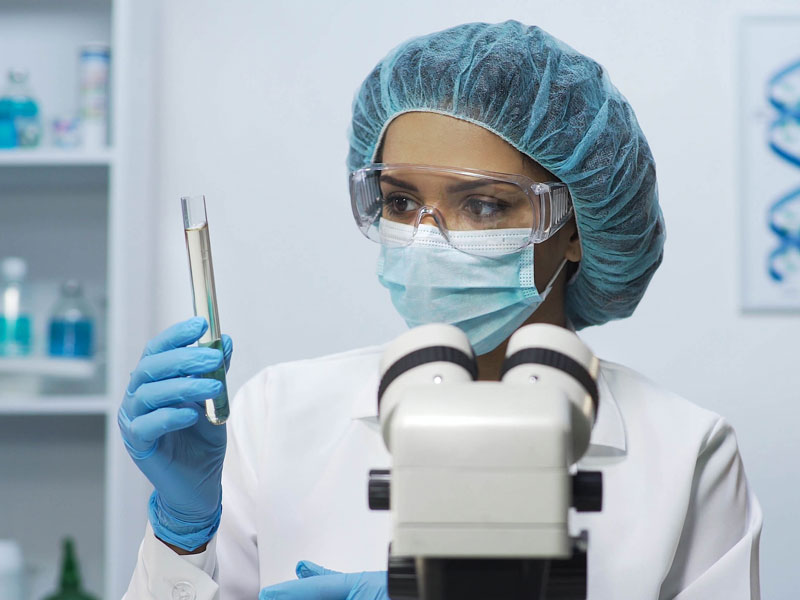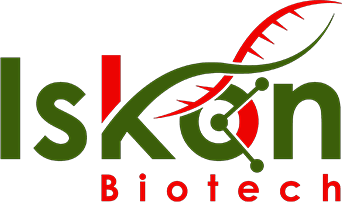Pharmaceutical Testing

Get the Information You Need
Test Your Product the Right Way
Disinfectants are chemical products that are designed to eliminate microorganisms on the surfaces of inanimate objects. Our team of professionals is capable of testing a variety of different disinfectant products, including high-level disinfectants. We perform a wide range of tests to ensure that you get the information you need for your product. Depending on the disinfectant product and the information you need as a sponsor, we will prove the efficacy and quality of your product by performing a selection of tests.
- Germicidal (UV) Lamps
- Ozone as Disinfectant
- AOAC Use Dilution Test
- Sporicidal / Fungicidal Activity Test
- Product Claim for EPA or FDA or Non-regulatory
- Rate of Kill Test
- Efficacy Testing
- AOAC Germicidal Spray Products Test
- AOAC Confirmatory Tuberculocidal Activity Test
- Contact Lens Solution Efficacy Test
- Hard Surface Carrier Test
- Germicidal Equivalent Concentration
- Confirmative In-vitro Test
- Presumption In-vitro Screening Test
- Germicidal and Detergent Sanitizing Action of Disinfectants
- Bacteriostatic Activity of Laundry Additive Disinfectants
Antimicrobial testing is the process of evaluating the effectiveness of substances that are designed to inhibit or kill microorganisms. At our lab, we offer antimicrobial testing so that you can ensure your antimicrobial agent product is effective, safe, and accurate. Our testing services not only confirm your product’s effectiveness but it also allows us to analyze its environmental impact, whether it is safe for the environment or not. We can verify whether your product’s ingredients and makeup comply with the necessary regulations, laws, guidelines, and standards.
- Antimicrobial Surface Testing
- Antimicrobial Textile & Fabric Testing
- Fungal Resistance Testing
- Biofilm
- Microbial Ingress
- Zone of Inhibition
- Antimicrobial Tests
- ASTM C1338: Standard Test Method for Determining Fungi Resistance of Insulation Materials and Facings
- ASTM D932: Standard Practice for Filamentous Iron Bacteria in Water and Water-Formed Deposits
- ASTM D2020: Standard Test Methods for Mildew (Fungus) Resistance of Paper and Paperboard
- ASTM D3273: Standard Test Method for Resistance to Growth of Mold on the Surface of Interior Coatings in an Environmental Chamber
- ASTM D4300: Standard Test Methods for Ability of Adhesive Films to Support or Resist the Growth of Fungi
- ASTM D5590: Standard Test Method for Determining the Resistance of Paint Films and Related Coatings to Fungal Defacement by Accelerated Four-Week Agar Plate Assay
- ASTM E1153: Standard Test Method for Efficacy of Sanitizers Recommended for Inanimate, Hard, Nonporous Non-Food Contact Surfaces
- ASTM E2149: Standard Test Method for Determining the Antimicrobial Activity of Antimicrobial Agents Under Dynamic Contact Conditions
- ASTM E2180: Standard Test Method for Determining the Activity of Incorporated Antimicrobial Agent(S) In Polymeric or Hydrophobic Materials
- ASTM E2315: Standard Guide for Assessment of Antimicrobial Activity Using a Time-Kill Procedure
- ASTM G21: Standard Practice for Determining Resistance of Synthetic Polymeric Materials To Fungi
- AATCC 30: Test Method for Antifungal Activity, Assessment on Textile Materials: Mildew and Rot Resistance of Textile Materials
- AATCC 100: Test Method for Antibacterial Finishes on Textile Materials
- AATCC 147: Test Method for Antibacterial Activity of Textile Materials: Parallel Streak
- AATCC 174: Antimicrobial Activity Assessment of Carpets
- ISO 18184:2019 Textiles: Determination of Antiviral Activity of Textile Products
- ISO 21702:2019: Measurement of Antiviral Activity on Plastics and Other Non-porous Surfaces
- USP 51: Antimicrobial Effectiveness Testing
- USP 1227: Neutralization Validation
Applications and environmental effects on materials, as well as infection control technologies for reusable medical devices.
Product Development Testing Support: Iskon labs provide support throughout the product life cycle, we collaborate with your team to help navigate the complex regulatory process and help support your testing needs. Our team has technical expertise in microbiology, chemistry, toxicology, virology, and molecular biology testing, helping to accelerate your time to market.
Iskon labs is ISO 17025-accredited, and GLP- and cGMP-compliant. We work with your company to adhere to the Quality System Regulation (QSR) and fulfill unique needs in medical device testing.
Iskon labs can provide testing and submission support in:
- Microbiology: Antimicrobial Efficacy and Cleaning/Disinfection Validation
- Chemistry: Raw Material Testing and Verification
- Virology: Viral Clearance, Viral Inactivation, and Viral Claim Support
- In-vitro Toxicology: Bench and Clinical Studies to Ensure the Product Is Safe for Human Use
- Extraction & Leachables for Medical Devices (Chemical Characterization)
- Material Characterization Screens for Raw Materials
- Physicochemical USP Plastics Tests
- Personal Protective Equipment (PPE) Reprocessing
- Antimicrobial Efficacy Studies
- Bacterial & Viral Filtration Efficiency (BFE/VFE)
- Barrier Face Coverings Test
- Flammability Test
- Glove Testing
- Hydrostatic Pressure Test
- Material Performance Testing
- Microbial Cleanliness for Face Masks
- Particle Filtration Efficiency (PFE)
- Respirator Pre-Submission tests: NIOSH
- Spray Impact
- Surgical Face Masks and General-Use Masks: ASTM F2100 & EN 14683
- Surgical Gowns and Drapes: AAMI PB70 7 EN 13795
- Tensile and Tear Resistance Tests for Fabrics
- Viral Penetration Test
- Protective Barriers & Material Performance
- Reuse Medical Device Processing
- Cleaning Validation: Reusable Devices
- Disinfection Validation for Reusable Devices
- Flexible Endoscope Sampling Kit
- Functionality Testing
- Scope Processing Validation: Reuse Device
- Sterilization Validation: Reuse Device
Environmental monitoring is key to protecting the environment from products that could be potentially hazardous. When it comes to product testing, environmental monitoring is the process of assessing and evaluating a product’s impact on the environment throughout its lifecycle. Our environmental monitoring services aim to minimize the environmental risks associated with products. The different elements of the product that we look at include the sourcing of materials, manufacturing processes, packaging, transportation, and disposal of the product.
- Environmental Tests: Air, Surface, and Water-Sampling and Testing
- Bacteria and Fungi
- Filter Sterilization Validations
- Water System Validations & Monitoring
- Water Testing
- Wet Chemistry Capabilities
Testing the components that make up your hand sanitizer product allows us to help you verify the ingredients, check the product for impurities, and ensure that the product is safe to be used. Our testing services also include efficacy testing so that you can have confirmation that your product works the way it is designed to work. When you choose our testing services, you can get quality assurance on your product, ensure that the product complies with regulations, and give your buyers confidence in the product. Without our hand sanitizer testing services, you will not have the information and data you need to sell your product effectively.
Tests:
- CEN Standards:
- EN 1499: Chemical Disinfectants and Antiseptics - Hygienic Handwash - Test Method and Requirements
- EN 1500: Chemical Disinfectants and Antiseptics - Hygienic Handrub - Test Method and Requirements
- ASTM Standards
- ASTM E-1174: Standard Test Method for Evaluation of the Effectiveness of Healthcare Personnel Handwash Formulations
- ASTM E-1838: Standard Test Method for Determining the Virus-Eliminating Effectiveness of Hygienic Handwash and Handrub Agents Using the Fingerpads of Adults
- ASTM E-2276: Standard Test Method for Determining the Bacteria-Eliminating Effectiveness of Hygienic Handwash and Handrub Agents Using the Fingerpads of Adults
- ASTM E-2613: Standard Test Method for Determining Fungus-Eliminating Effectiveness of Hygienic Handwash and Handrub Agents Using Fingerpads of Adults
- ASTM E-2011: Standard Test Method for Evaluation of Hygienic Handwash and Handrub Formulations for Virus-Eliminating Activity Using the Entire Hand
- ASTM E-2315: Standard Guide for Assessment of Antimicrobial Activity Using a Time-Kill Procedure
Pharmaceutical testing needs packaging and stability solutions to guarantee the quality, safety, and effectiveness of pharmaceutical goods for the duration of their authorized shelf lives. These systems assure regulatory compliance, determine shelf life, and safeguard items from environmental variables. Stability and proper packaging help to reduce the danger of potential injury from deteriorated or unstable medications by ensuring that patients receive powerful, secure, and effective medications. While transportation studies, packaging material compatibility, container closure integrity, light and photostability testing, accelerated stability testing, and real-time stability testing are carried out, stability studies assess the impact of environmental conditions on the drug product over time.
- Accelerated & Real-Time Aging
- Container Closure Integrity: Dye Immersion & Bacterial Immersion
- Container Closure Integrity: Mass Extraction
- Microbial Aerosol Fallout Challenge Test
- Packaging Integrity & Strength Test
- Packaging Shelf Life Studies
- Stability Studies: Pharmaceutical
- Transportation & Distribution Performance
- Wet Chemistry Capabilities
Pharmaceutical testing must include sterility assurance, especially for sterile items such as injectables, ophthalmic preparations, and implantable medical devices. To reduce the hazards to patients' health, it is crucial to make sure that these items are free of live bacteria. For patient safety, regulatory compliance, and quality control, sterility assurance is essential. In order to perform a sterility test, the product is inoculated into culture media and incubated for a predetermined amount of time. The safety and effectiveness of sterile products must be ensured by the validation of aseptic manufacturing procedures, environmental monitoring, bioburden testing, endotoxin testing, validation of sterilizing methods, and quality control and release testing. This all-encompassing strategy guarantees the efficacy and safety of sterile products while giving information for legal compliance and patient security.
- Antibiotic Potency Test
- Antimicrobial Preservative Effectiveness
- Bacterial Endotoxins Test
- Impurities Identification
- Method Suitability (Bacteriostasis / Fungistasis)
- Microbial Identification
- Microbiological Examination of Nonsterile Products
- Mycoplasma Testing: PCR & Traditional
- Particular Matter
- Product Sterility: Cleanroom
- Product Sterility: Isolator
- Radiation Quarterly Dose Audits (QDAs)
- Virucidal Efficacy Testing
- Zone of Inhibition
Validating sterilization is an essential component of pharmaceutical testing, particularly for products that must be sterile to safeguard patients. It confirms that the chosen sterilizing technique effectively eliminates or reduces any live bacteria in the product to a safe level. This is essential for the protection of patients, legal compliance, and product quality. Sterilization validation testing includes biological indicators (BIs), dose mapping studies, biological and chemical testing, biological and biological challenge testing, sterilization process parameters, validation protocol, validation batches, and reporting. By verifying the sterilization process, pharmaceutical enterprises may confidently provide patients with medicines that adhere to essential quality and regulatory standards.
- Contract Sterilization: Sterigenics
- Filter Sterilization Validations
